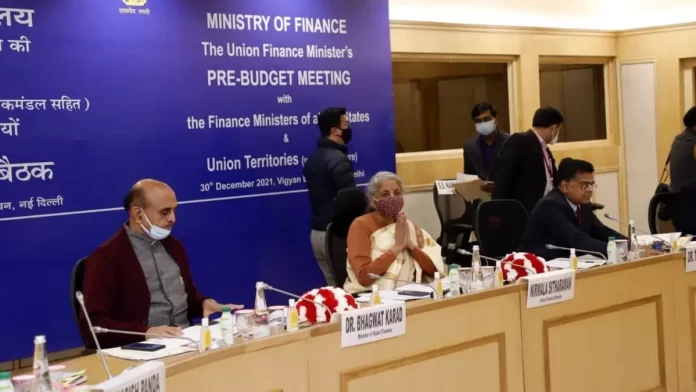The Fiscal Responsibility and Budget Management (FRBM) Review Committee, constituted in May 2016, undertook a comprehensive review of India’s fiscal policy framework.
The committee, headed by former Revenue Secretary Shri N.K. Singh, submitted its report in January 2017.
The recommendations aimed to enhance fiscal prudence, debt sustainability, and transparency in fiscal management. In this article, we delve into the major recommendations of the FRBM Review Committee and their potential implications for India’s fiscal future.
- Debt-to-GDP Ratio Targets: The committee proposed a gradual reduction in the central government’s debt-to-GDP ratio. The target was set at 60% for the general government (combined central and state governments) by 2023, with interim targets to be achieved by 2020. This measure aimed to ensure fiscal discipline and debt sustainability in the long run.
- Escape Clause for Fiscal Deficit: The committee recommended the introduction of an “escape clause” in fiscal deficit targets to allow for flexibility during times of economic downturn or adverse situations. The escape clause would permit deviation from the fiscal deficit target by a specified margin, subject to certain conditions.
- Fiscal Council: To ensure greater transparency and accountability in fiscal management, the committee suggested the establishment of an independent fiscal council. The council would be responsible for monitoring adherence to fiscal targets, evaluating budgetary policies, and providing recommendations for prudent fiscal management.
- Medium-Term Expenditure Framework (MTEF): The committee emphasized the adoption of a Medium-Term Expenditure Framework (MTEF) to improve expenditure planning and reduce uncertainties. MTEF would entail a rolling three-year expenditure plan, which would enable better alignment of government spending with long-term fiscal objectives.
- Revenue Deficit Target: The committee recommended eliminating the revenue deficit by 2022-23. Revenue deficit occurs when the government’s total revenue falls short of its current expenditure. Eliminating this deficit would enhance the government’s ability to meet its expenses without resorting to borrowings.
- Fiscal Roadmap for States: In addition to central government finances, the committee proposed a fiscal roadmap for state governments. The states were encouraged to adopt prudent fiscal policies and work towards reducing their fiscal deficits over time.
- Public Debt Management Agency (PDMA): The committee recommended the creation of a Public Debt Management Agency (PDMA) to consolidate and coordinate government borrowing. The PDMA would be responsible for managing both central and state government debt, ensuring better coordination and efficiency in debt management.
- Comprehensive Review of Fiscal Rules: The FRBM Review Committee called for a comprehensive review of existing fiscal rules, taking into account changing economic dynamics. The objective was to design rules that are credible, flexible, and aligned with the country’s fiscal and economic objectives.
- Revenue Buoyancy: The committee emphasized the importance of achieving revenue buoyancy, where tax revenues grow at a faster rate than GDP. This would reduce the government’s reliance on non-debt creating resources and support sustainable fiscal management.
- Expenditure Reforms: To rationalise public expenditure, the committee recommended a review of various subsidies, better targeting of social welfare programs, and improving the efficiency of public spending.
The recommendations of the FRBM Review Committee 2017 were aimed at achieving fiscal discipline, debt sustainability, and transparency in India’s fiscal management.
The proposed reforms sought to enhance the credibility of fiscal targets, promote responsible borrowing practices, and align government spending with long-term fiscal objectives.
By adopting these recommendations, India can strengthen its fiscal framework and create a more robust foundation for sustained economic growth and development.
